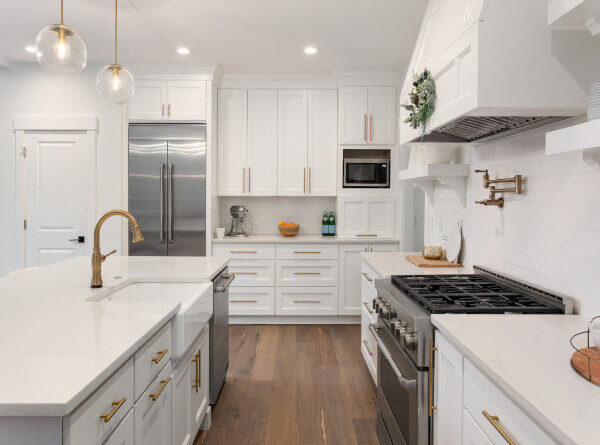The Best Carpet for Basement
Carpet is the most popular choice among homeowners who want to make their basement space more appealing by adding a soft touch to it. If you’re just learning how to buy a carpet that will be best for your basement, there are a lot of options out there.
It is very important that you choose the right one so that it will be comfortable and safe for your family. Basements are hotspots for mold, mildew, and other unpleasantness due to increased exposure to moisture.
This guide will help you to find out the best-suited carpet depending on your needs and budget. Read on!
Synthetic Carpet for Basements
Basement flooring made of synthetic material is highly recommended for basements because it’s moisture resistant unlike natural materials like cotton or wool. It also has a stain protection feature, so it makes cleaning easy.
Synthetic carpet is good for the basement because the materials tend to retain less moisture than natural fibers. They’re also more stain-resistant than natural carpets.
Nylon Basement Carpet
If you’re looking for the best carpet for the basement, look no further than nylon carpet. It’s durable and able to withstand moisture. Unlike other synthetic carpets that are made of polypropylene or acrylic, nylon is made from natural materials that feel soft when touched.
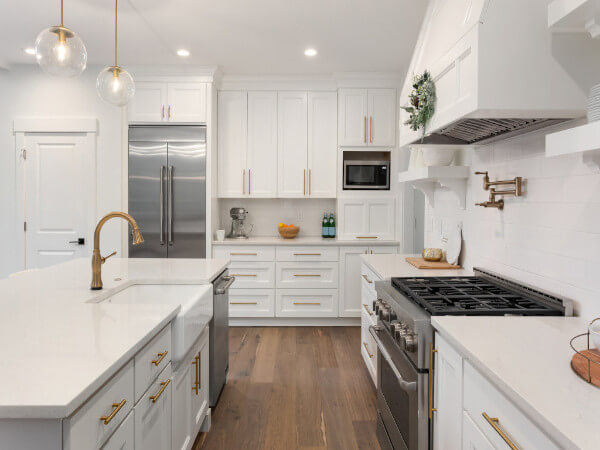
Image credit: https://previews.123rf.com/
Pros of Nylon Carpet
Great stain resistanceEasy to maintainMore durable
Cons of Nylon Carpet
It’s expensiveIt’s not soft like other materialsGenerates a lot of static electricity
Polyester Carpet
There are several types of polyester carpets like Berber and loop, but other than that these materials are really the same. Polyester is the ideal choice for basements, especially if you’re looking for an all-around, versatile carpet. This synthetic material is resistant to spills, accidents, and moisture.
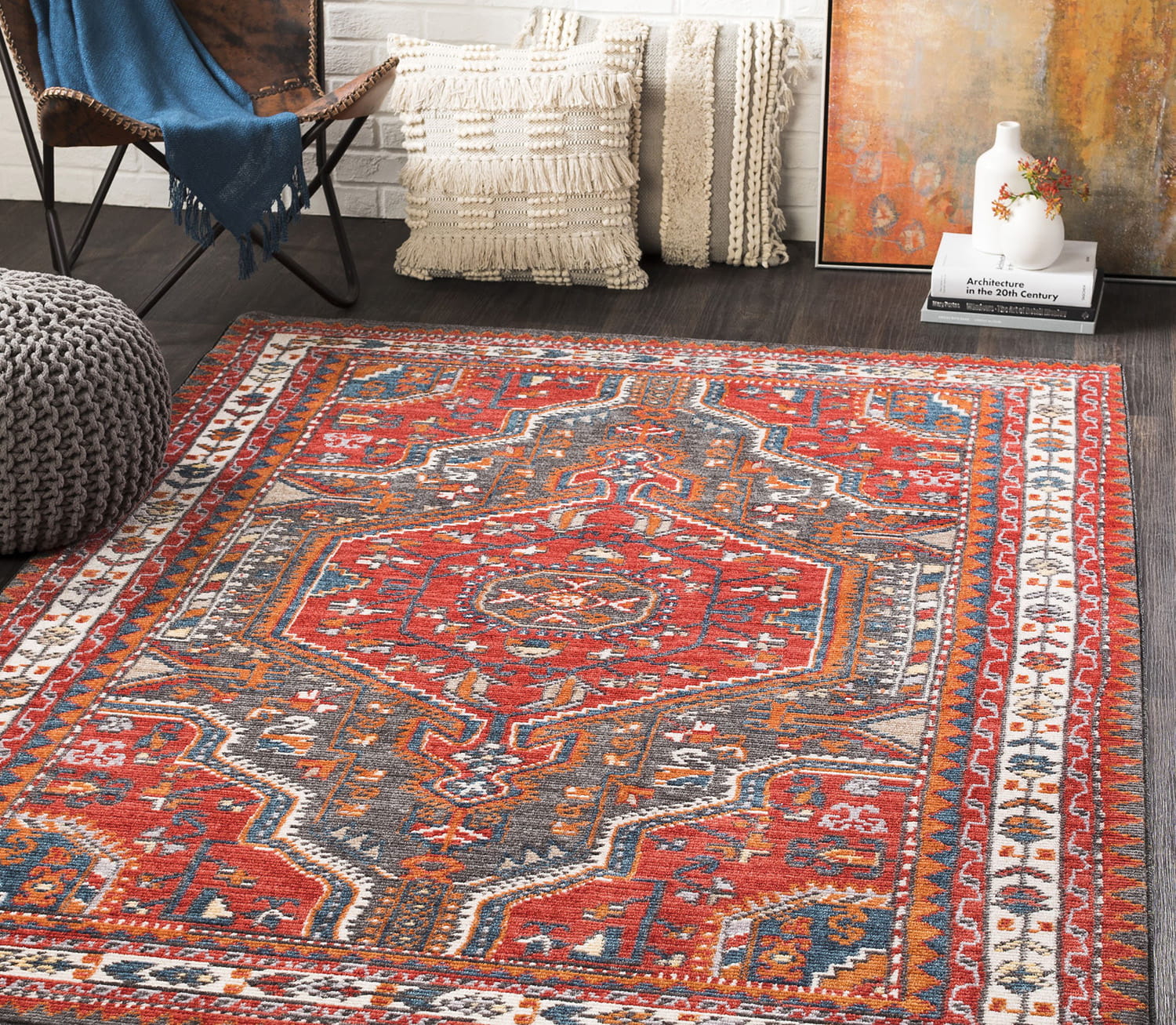
Image credit: https://cache.hedgeapple.com/
Pros of Polyester Carpet
Less expensive than other carpet optionsIt’s a green carpeting material made of recycled bottle caps and tiresEasy to cleanIt’s durable and reliable
Cons
Not the best option in high traffic areasNeeds more tender care and love than other carpets
Olefin Synthetic Fiber
Choosing the right carpet for basements will ensure that they are protected from excess moisture. Olefin fiber is recommended for the basement to protect their carpeting. Olefin is a polypropylene material that’s made from plastic pellets and recycled materials.
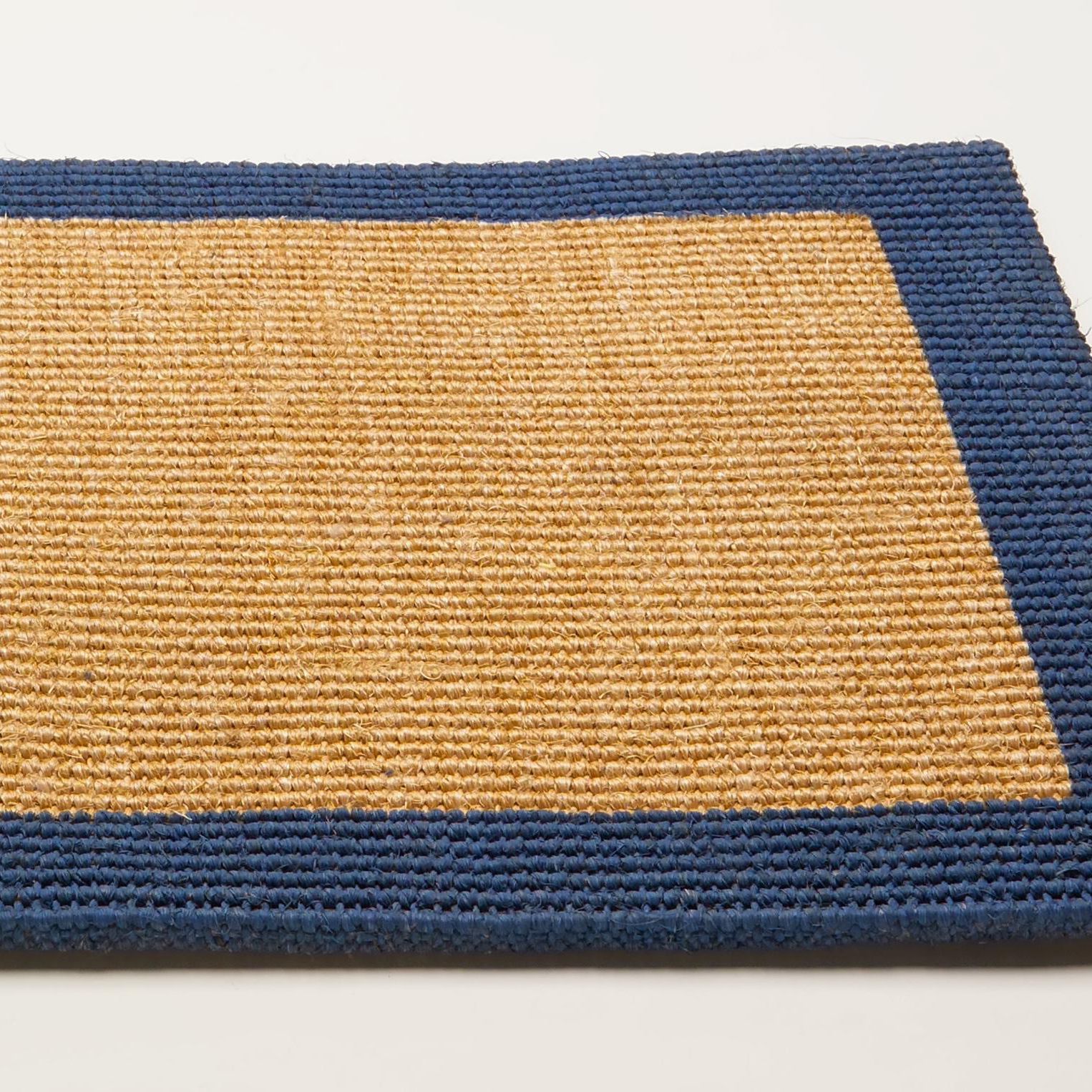
Image credit: https://www.thespruce.com/
It looks and feels like wool and is waterproof, mold, and stain-resistant. It’s known within the carpeting industry as a material that is tough, reliable, and comfortable to boot. Its woven nature helps prevent clumping and debris from becoming too ingrained into your flooring.
Pros of Olefin
Can be used both indoors and outdoors
Cons
It’s not resilient as other carpetsWears quickly in high traffic areasThe wool-like carpet fibers catch and tear easily on furniture when moved around the room
Triexta Carpeting
Triexta carpet fiber is made from three natural fibers: wool, nylon, and polyester. The soft blend gives it a distinct look and feels that will stay plush for many years to come.
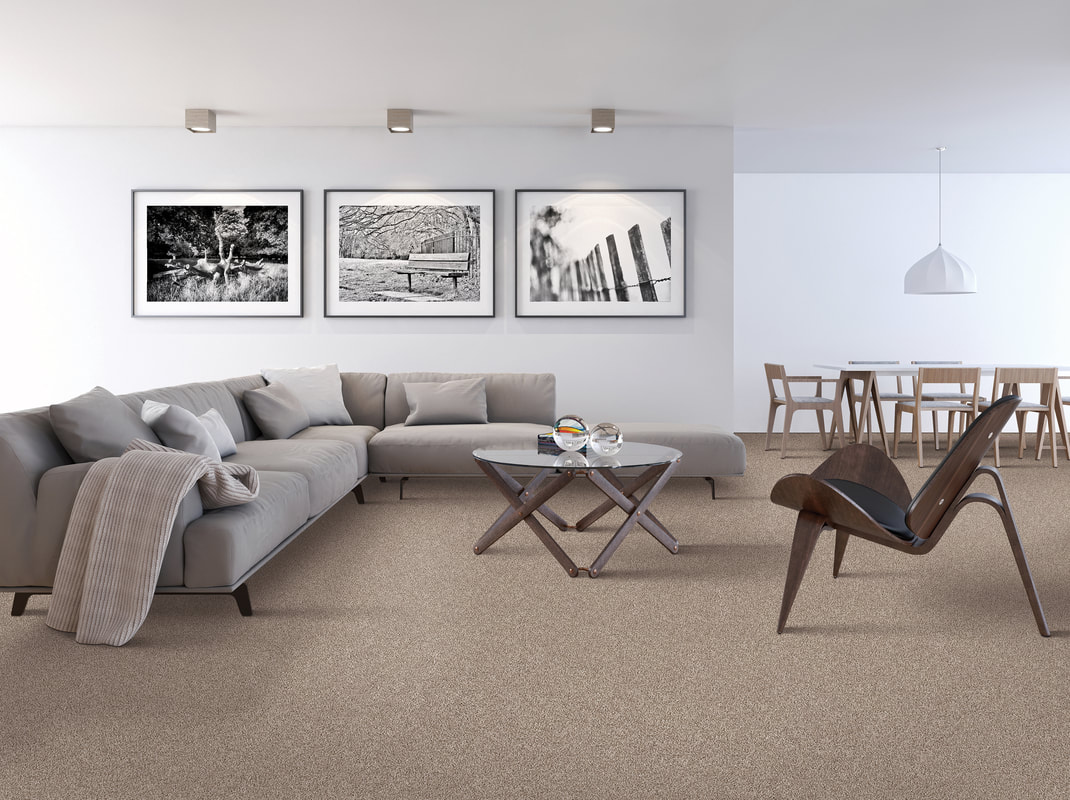
Image credit: http://www.tedsabbeyblog.com/
Cons of Triexta Carpeting
The fibers electrostatically attract dirt, making it hard to vacuum
Berber Carpet for Basements
Berber carpet, also known as loop pile, is easy to install, affordable and durable compared to other styles. Examples include nylon and olefin. Nylon is the most popular choice for Berber carpets because it’s known to resist stains and holds up under heavy foot traffic.
On the other hand, olefin tends to soil and stain more easily than nylon, making it a great choice for low-traffic places.
Low Pile Basement Carpet
Low pile carpet is a good choice for basement areas because the cut pile fibers keep dirt and moisture from becoming trapped in the pile. Low Pile carpeting makes basements look less like home entertainment rooms and more like cozy family spaces.
It gives you plenty of softness to sink into, but not too much for you and your guests to trip on. The style is soft and low maintenance, making it the perfect choice for most homes. If you opt for a low pile, go for a low pile style like a plush carpet.
Low pile carpets dry out quickly than high pile carpets when they become damp and wet. If your home is frequented by pets, kids, and heavy foot traffic, then a low pile carpet is the right choice. Look for a synthetic carpet with short fibers that are level and dense like thick grass when mowed.
Carpet Tiles
Carpet tiles are an exciting trend in carpets. Carpet tile can be installed on any type of flooring, but it is especially ideal for concrete subfloors. It comes in a range of shapes and sizes, including squares. The squares are easy to install since they do not need seam allowances.
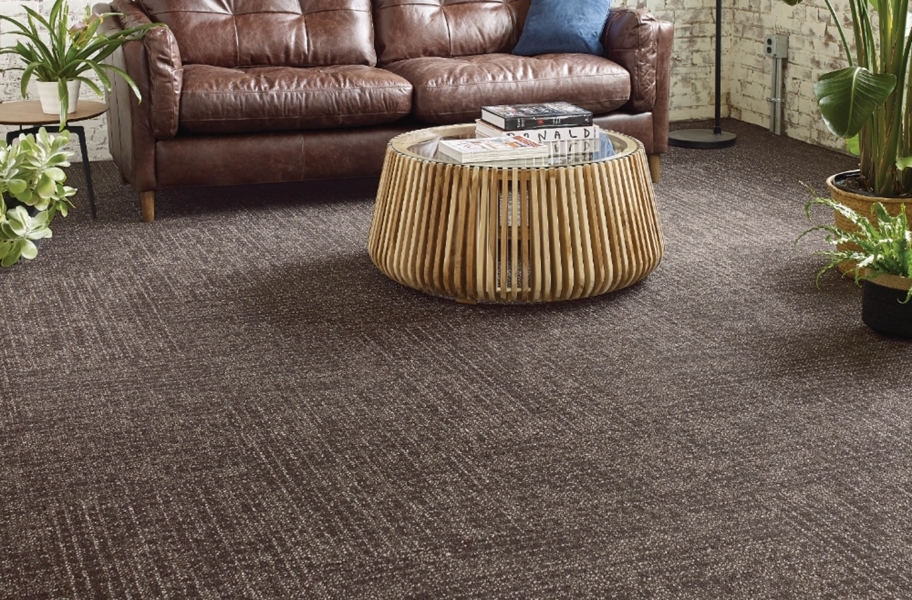
Image credit: https://www.flooringinc.com/
Installing carpet tile is very easy since you only need to peel and stick the tiles on your concrete subfloor. Since these tiles are made of vinyl and rubber, they can easily be cut into fairly small pieces for use as borders or other decorative floors indoors and outdoors.
They’re perfect for the basement because it is easy to clean these carpets without needing any professional help after a spill. Although carpet tiles are easy to lay, homeowners may need help with the big stuff. Bigger jobs can be handled by professionals who will install these tiles for you.
Sectioned Carpet
This is another low risk option for moisture-prone basements. Whether you’ve divided your basement into multiple rooms and renovated into an open living area, you’ll only use a carpet in only a portion of the space. And if you have water damage, you won’t replace the entire basement floor.
What to Look for in a Quality Basement Carpet
Many homeowners prefer carpet over other flooring options such as vinyl, engineered hardwood and laminate because of many reasons. These include the qualities of a carpet such as soft to walk on, insulation and it’s a forgiving material that works well on subfloor that is in less than good condition.
Factors to consider when choosing a carpet include:
The Pile of a Carpet
Low pile carpets are the best bet when it comes to basement carpeting. This is because the low pile carpet dries quickly compared to the high pile and that’s what the basement floor needs. Less time to dry compared to living room and bedroom which needs high pile carpets. Most homeowners opt for Berber carpet which has a closed loop, giving it a flat, textured appearance.
Carpet Padding
One way of controlling moisture from your concrete floors is to install an impermeable rubber pad. However, some carpet experts are against this idea and are recommending pad-less carpet that allows the basement floor to breathe. You should consider such factors for when you go for free carpet installation
Nonetheless, carpet padding is important because it provides extra insulation, protects the carpeting from dampness and provides cushioning which you’ll need when you have a concrete subfloor. Go for the best breathable carpet pads that are made of open-cell synthetic foam or from synthetic fibers to increase the longevity of your basement’s carpet.
Waterproof Carpets for Basement
If your basement is vulnerable to flooding and water damage, you’ll have a material that can handle such a situation. Some of the waterproof materials that you need to go for include synthetic carpet. Opt for the less expensive ones like olefin carpeting and polyester.
Durability and Comfort
Comfort and durability are the two features that people look for in basement carpeting. There are some materials today, such as 100-percent nylon, which is more resistant to dust and mites than other materials. Nylon is also great for homes with small children because it doesn’t stain easily.
If your basement is for relaxing and watching TV, go for comfort instead of wearability, in which the best flooring options would be olefin and triexta.
Sectioned Carpeting vs. Wall-to-Wall Carpeting
You want your basement to look bigger, so it’s a better idea to have divided carpeted flooring. In this way you can create different rooms in the basement for specific purposes. Wall to wall carpeting is not the best idea in the basement because if any part of it sustains water damage, you’ll need to replace the entire carpet.
The Type of Material
Synthetic carpets are the best bet for basements. They’re easy to maintain and they offer a long life if you take proper care of them. Basement carpeting should be moisture resistant and stain resistant at the same time. So, for this purpose, synthetic carpets do better than woolen carpets.
Pros and Cons of Basement Carpet
Pros
Better insulation from the cold concrete than vinyl, laminate and epoxy flooringDIY-friendly installation, especially if you choose carpet tilesCarpet has a breathability factor greater than other types and even light moisture can be mitigated by dehumidifiers.Large water leaks can be dried out quickly before mold and mildew develop
Cons
Prone to mold in damp conditionsWorst option in the event of flooding
FAQs about the Best Carpet for the Basement
What is the best carpet padding for concrete?
Frothed foam padding is a great choice to use in concrete floors because it responds well in heavy-traffic areas. It’s densely packed and will adhere well to the concrete floor and carpet backing.
Final Thought about the Best Carpet for the Basement
As you can see, choosing the best carpet for your basement isn’t going for a carpet that looks pretty in your local store. It requires a different approach. Consider what you’ll be using the basement for, and pick a carpet based on your intended use.
The post The Best Carpet for Basement appeared first on Kitchen Infinity.
Did you miss our previous article…
https://public-kitchen.org/?p=597


